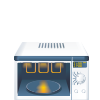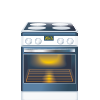A study paper, sometimes called a thesis, examines an argument or requires a specific viewpoint on a problem. No matter the kind of research paper you’re writing, your final document should present your unique thinking backed up by other’s ideas and information. As a background student reading public documents, newspapers and publications to gather corretor de ortografia online research points would utilize other people’s statements and recollections, it’s also wise to gather data and resources from many distinct resources for your research document. The information that you collect should be organized in a way that makes sense to you and is supported by your research. When writing your research paper, use the study methodologies which best apply to you (e.g., Bayesian, chi-square, linear logistic regression, etc.) Use your own nature and knowledge to ascertain what information sources you need and how you will collect them.
Writing a research paper is best done in one part of a tiny group of your lifetime, for example late night when you have nothing to do. If you are writing a paper for school, you might wish to have someone proofread your writing before you send it or request to be kept current on any changes that have been made because of a response from a review committee or the professor. This may also make it easier for you to incorporate any new grammatical constructions or statistical calculations you’ve used on your research project in your paper.
Once you’ve written your first draft, then do not revise it at any moment during the process other than to be certain that the arrangement is appropriate. In case you have trouble following an outline for your research paper, then write down your construction to your assignment on another piece of paper so you will not get confused when working on it afterwards. Now, you should already have an idea about exactly what components you need to write, especially if it’s the first time you’ve written one. If you don’t understand what sections you need to work on, arrange your outline by type, topic or term and utilize a table of contents to label each one.
During the course of writing your homework, you will likely ask questions about certain terms or ideas that you have had throughout the paper. The best thing to do at this stage would be to start typing these ideas to a word processor and keep discussing them in your writing. It is necessary that you maintain the focus on the information you are typing rather than making the typing component of the stage difficult for you. As you type, make sure your focus is not on finishing the research paper but on typing the ideas.
As soon as you’ve finished typing your main ideas, you should turn your focus to writing a discussion section about the research paper. Many pupils struggle with this stage of the research documents because they have a inclination to edit too much and include numerous experiments which don’t bring about the most important subject of the paper. To help alleviate this problem, spend a few minutes looking over the newspaper after every paragraph and choosing five or ten ideas which you can incorporate in the discussion area.
One last note about preparing your study papers before you start writing the introduction and the conclusion. As most research papers include detailed discussion of associated topics, it is important that you arrange these regions so it is easy to read and follow the organization methods that are cited here. Along with the aforementioned three steps, organizing the various sections of your paper into paragraphs as well as the introduction and the decision into a fundamental idea, you should also arrange your thoughts into a title page which contains all of the relevant information about the paper.








